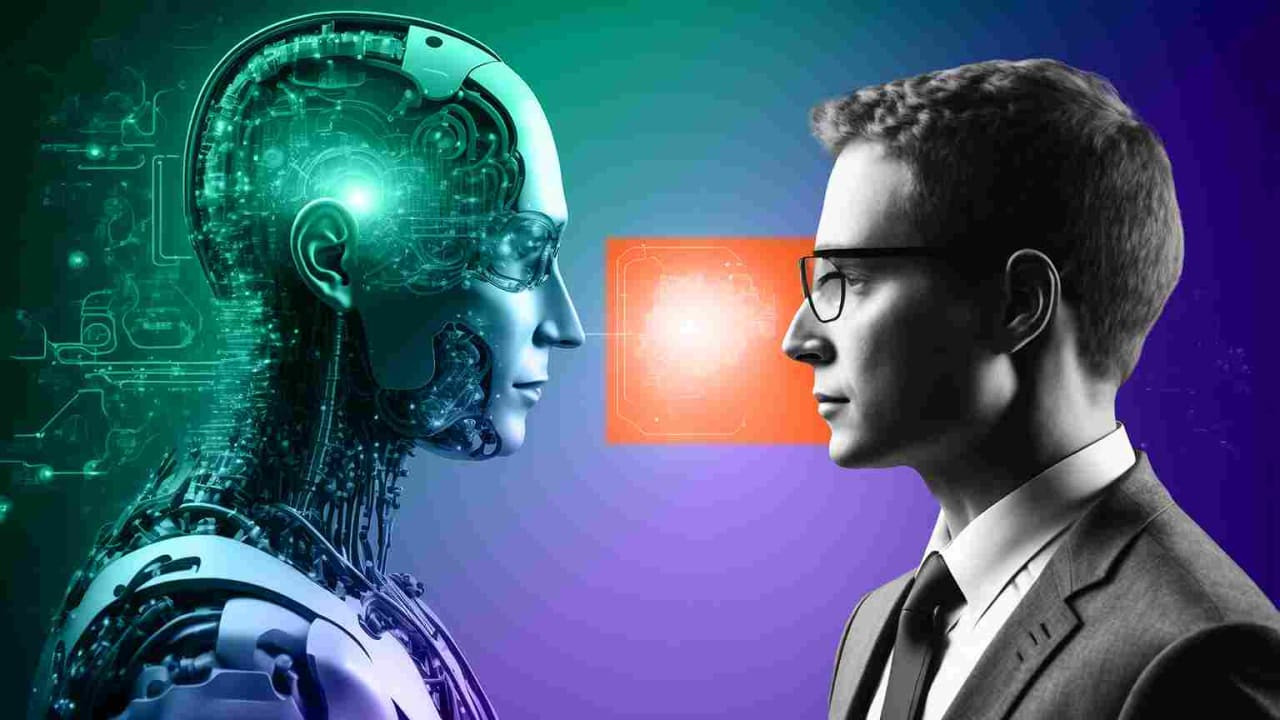The AI Revolution: Reshaping the Future of Work
The rise of artificial intelligence (AI) is reshaping industries and impacting the future of work. From automating tasks to generating creative content, AI is rapidly becoming an integral part of our lives and workplaces. While this technological revolution offers incredible potential for innovation and efficiency, it also raises crucial questions about job security and the skills needed to thrive in the AI-powered future.
The Rise of AI Automation
The automation of tasks is one of the most visible and impactful aspects of AI. AI-powered robots are now capable of performing a wide range of jobs, from manufacturing and logistics to customer service and data analysis. This automation is already leading to job displacement in certain sectors, with experts predicting that millions of jobs could be lost to AI in the coming years.
For instance, a 2023 study by the McKinsey Global Institute found that up to 30% of current work activities could be automated by 2030. This automation is particularly affecting jobs that involve repetitive tasks, data entry, and basic decision-making.
The Impact on Different Industries
The impact of AI on different industries varies widely. Some sectors, like manufacturing and transportation, are experiencing significant automation, while others, like healthcare and education, are seeing AI being used to enhance and support human work rather than replace it.
Manufacturing and Transportation
In manufacturing, AI-powered robots are being deployed to automate tasks like assembly, welding, and painting. This automation is increasing efficiency and reducing costs, but it is also leading to job displacement for workers who perform these tasks. The same trend is evident in the transportation sector, with autonomous vehicles poised to disrupt the trucking and delivery industries.
Healthcare
While AI is revolutionizing healthcare by improving diagnosis, treatment, and drug discovery, it is not replacing doctors and nurses. Instead, AI is being used to support healthcare professionals by providing insights, analyzing data, and automating tasks, ultimately leading to better patient care. AI-powered tools are assisting with tasks such as medical imaging analysis, drug development, and personalized treatment plans.
Finance
AI is transforming the finance industry, automating tasks like fraud detection, risk assessment, and trading. However, the impact on jobs is less clear-cut. While some roles are being automated, new opportunities are emerging in fields like AI development, data science, and cybersecurity.
Jobs at Risk and New Opportunities
The rise of AI presents both challenges and opportunities for the future of work. While some jobs are likely to be automated, new roles are emerging that require specialized skills in AI and related fields. The jobs most at risk are those that involve routine tasks and can be easily automated.
Here are some of the jobs that are most likely to be impacted by AI:
-
Data entry clerks: AI can automate data entry tasks, making this role increasingly redundant.
-
Customer service representatives: Chatbots and virtual assistants are becoming increasingly sophisticated, replacing human customer service representatives for simple inquiries.
-
Truck drivers: The advent of autonomous vehicles threatens to displace truck drivers, although this transition may take longer than for some other professions.
-
Manufacturing workers: Assembly line jobs are susceptible to automation, leading to job losses in manufacturing.
-
Financial analysts: AI-powered tools can analyze financial data, potentially automating some of the tasks performed by financial analysts.
However, The AI revolution also presents a wave of new job opportunities. These roles require specialized skills in AI and related fields, such as:
-
AI engineers and developers: Companies are increasingly seeking AI engineers and developers to create and maintain AI systems.
-
Data scientists and analysts: AI requires vast amounts of data, making data scientists and analysts essential for managing, analyzing, and interpreting data.
-
AI ethicists: As AI becomes more sophisticated, the need for AI ethicists to ensure responsible and ethical use of AI is growing.
-
AI trainers: Companies are seeking AI trainers to teach AI models how to perform specific tasks and improve their accuracy.
Adapting to the AI-Powered Future
The future of work is uncertain, but one thing is clear: adaptation is key to navigating the AI revolution. To thrive in an AI-powered world, individuals need to develop skills that are complementary to AI, rather than trying to compete with it. This means focusing on skills that AI struggles with, such as:
-
Creativity and problem-solving: AI is excellent at analyzing data and following instructions, but it lacks the creativity and adaptability of human beings. Developing creative thinking and problem-solving skills is essential for success in an AI-driven world.
-
Critical thinking and judgment: AI can provide insights and recommendations, but it is still up to humans to critically analyze and evaluate these recommendations and make informed decisions.
-
Emotional intelligence: AI lacks the ability to understand and respond to human emotions. Developing emotional intelligence and interpersonal skills will be increasingly valuable in the future of work.
-
Adaptability and lifelong learning: The AI landscape is constantly evolving, requiring individuals to be adaptable and embrace lifelong learning. Staying current with new technologies and skills will be crucial for navigating the AI-powered future.
The Future of Work: A Balancing Act
The rise of AI presents a complex and multifaceted challenge for the future of work. While AI promises to bring about significant efficiency gains and improvements in various industries, it also raises concerns about job displacement and the need for individuals to adapt to a rapidly changing landscape. The key to navigating this challenge lies in embracing a balanced approach that leverages the power of AI while prioritizing the role of human intelligence, creativity, and empathy. By embracing lifelong learning, developing complementary skills, and fostering a collaborative relationship between humans and AI, we can unlock the full potential of AI while ensuring a future of work that is equitable and sustainable for all.

















